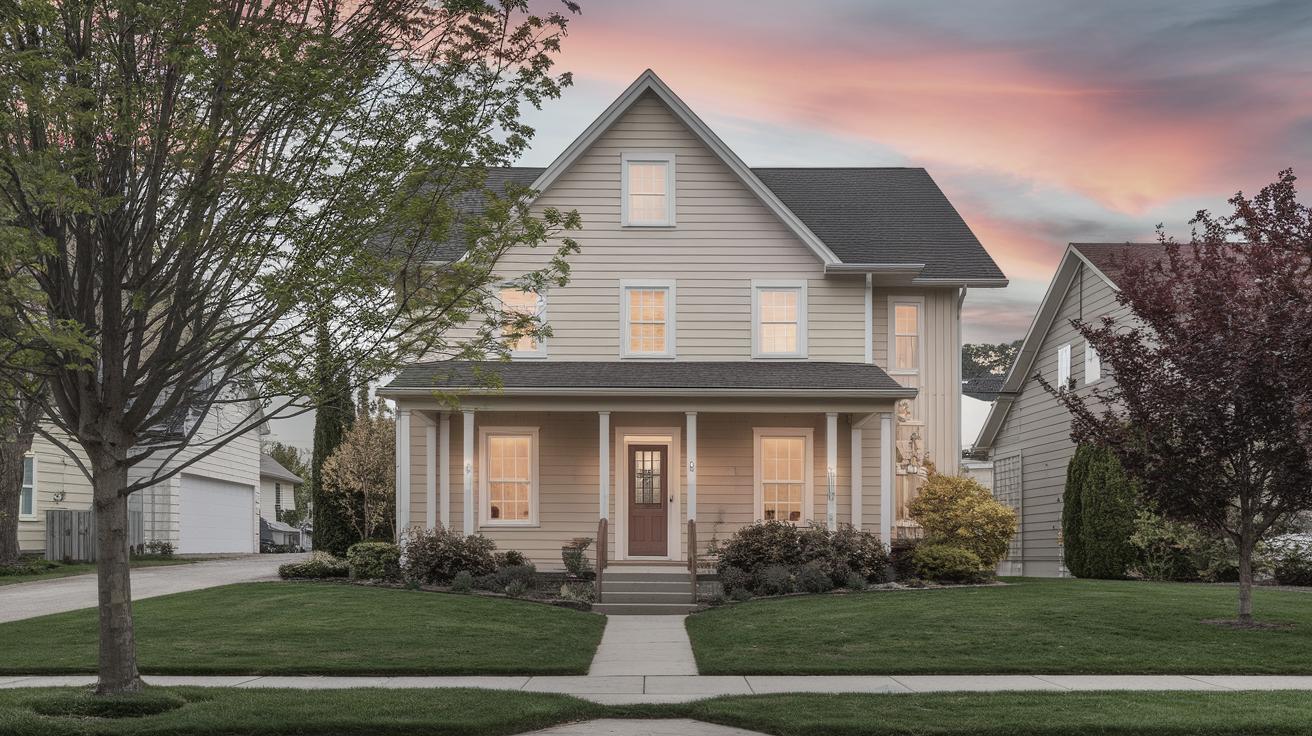How to Find Foreclosure Properties
Searching for foreclosure properties can be an enticing opportunity for homebuyers and investors looking for deals, but it also requires thorough knowledge and skillful action. This guide will help you understand how to find foreclosed homes in Canada, the buying process, the importance of credit, and the advantages and disadvantages of purchasing such homes. Additionally, navigate the landscape of obtaining a mortgage and learn insights through our comprehensive FAQs and expert picks. Armed with the right information, you’ll be ready to make an informed decision on your property investment journey.
Key Points
Foreclosure properties offer unique opportunities to acquire real estate below market value, which can appeal to both investors and homebuyers alike. Discover the different methods to identify such properties, especially in a Canadian context, and explore the financial and procedural steps crucial to closing a deal on a foreclosed home.
Before jumping into the market for foreclosures, it’s essential to be aware of both the benefits and challenges that can accompany these purchases. From financial preparation to professional guidance, this segment provides insights into the entire process, rounded out by tips for securing the best mortgage tailored to your circumstances.
How To Find Foreclosed Homes For Sale In Canada?
In Canada, finding foreclosed homes for sale may not be as straightforward as searching traditional property listings. The foreclosure process varies by province, but typically, properties can be discovered through real estate agents specializing in foreclosures, online real estate portals, or by connecting with banks and lending institutions directly.
Additionally, some public surplus property auctions also include foreclosed properties. By staying informed about upcoming auctions or directly contacting banks for their Real Estate Owned (REO) properties, prospective buyers can often find excellent opportunities. It’s equally important to regularly check court listings where foreclosure proceedings are announced, enabling you to track properties within your area of interest.
How To Buy A Foreclosed Home
Step 1. Get Professional Advice
The first step in purchasing a foreclosed home is to secure reliable professional advice. Real estate agents who have experience in foreclosures, mortgage advisors, and legal professionals can guide you through the intricate process. They will provide insights into the market trends and evaluate whether a foreclosed home is a suitable investment for you.
Having an expert on your team helps you interpret complex foreclosure laws and recognizes potential red flags, such as liens or structural issues, which can influence the value of the property profoundly. With their support, you’ll be better equipped to make informed decisions throughout the purchasing process.
Step 2. Have The Property Inspected And Appraised
An essential part of buying a foreclosed home is arranging an inspection and appraisal. A professional property inspection will reveal any hidden defects or issues that might require costly repairs. Understanding these elements is vital to assessing the true value and potential return on investment of the foreclosure property.
Simultaneously, obtaining an appraisal ensures you’re not overpaying and effectively benchmarks the property’s worth compared to the local market. Together, these services furnish a comprehensive picture of the investment opportunity, allowing smart budgetary planning and negotiations.
Step 3. Create A Budget
Creating a realistic budget is crucial when buying a foreclosed home. Beyond the purchase price, factor in potential renovation costs, outstanding fees tied to the property, and closing costs. A detailed budget plan also helps in securing a mortgage, as lenders often want assurance of your financial preparedness for such investment.
Consider setting aside additional funds for unexpected expenses that might arise once you’ve taken possession. A contingency fund ensures that unforeseen issues won’t derail your financial plan or impact other financial commitments you may have.
Step 4. Prepare For The Application Process
The application process for purchasing a foreclosed home can be more complex and competitive than standard home purchases. Prepare yourself by ensuring that your finances are in order and that you have all necessary documentation on hand. This readiness can expedite the mortgage approval process and increase your chances of securing the foreclosure deal.
Almost always, foreclosed properties are sold “as-is,” meaning the seller is less likely to entertain contingencies or lengthy negotiations. Be prepared for a streamlined process that may require quick decision-making to capitalize on the opportunity.
Find The Best Mortgage For Your Needs
When it comes to buying a foreclosed home, finding the right mortgage is essential. Many lenders offer specialized mortgage products tailored for purchasing foreclosures. Seek pre-approval from multiple lenders to compare terms, interest rates, and flexibility to finance any necessary repairs or upgrades after purchase.
It’s essential to work with a mortgage advisor who understands the foreclosure market and can assist in securing a loan that fits your financial profile. This step can save you considerable time and energy, ensuring you can focus on finding and purchasing the right property at the right time.
Foreclosures in Canada
Judicial Sale
The judicial sale process occurs in several Canadian provinces and involves the court overseeing the sale of a foreclosed property. In this process, the property can be sold either through public auctions or directly from the court. The advantage of judicial sales is that they offer a clear title to the buyer, as legal issues like lien claims are generally resolved during proceedings.
While judicial sales may present opportunities for lower prices, they also come with a lengthier process compared to other foreclosure methods. Patience and due diligence are essential, with bidders often required to follow specific procedural rules to make a purchase.
Power Of Sale
The Power of Sale is another common foreclosure method where the lender can sell the property quickly without going through the court system. This process is generally faster and allows lenders to recover funds by selling the property at market value to the buyers directly.
However, purchasers often purchase properties “as-is,” which means any deficiencies become the responsibility of the new owner. It’s crucial to conduct comprehensive research, including title searches and inspections, to ensure that the property is solid investment without hidden liabilities.
Pros And Cons Of Buying A Foreclosed Home
Pros:
One of the significant advantages of buying a foreclosed property is the potential for large savings, as these homes are often priced below market to encourage a quick sale. With negotiation skills and patience, buyers might acquire a valuable asset at a discounted price.
Another potential benefit includes less direct competition, especially in markets where foreclosure listings are less common, making it possible to snatch a great deal without the bidding wars typical of standard property transactions.
Cons:
On the downside, foreclosed homes often come with inherent risks. Properties may require extensive repairs or might have been poorly maintained. Uncovering the full cost of renovations and hidden issues is essential to assess whether the acquisition is financially viable.
There are also limitations like purchasing properties “as-is,” which means you accept the existing conditions despite any latent defects or necessary repairs not uncovered during inspection. These can lead to additional costs unforeseen before your initial purchase.
The Importance Of Your Credit
Your credit score plays a crucial role in securing financing for a foreclosed home. Lenders evaluate your creditworthiness to determine loan approval terms and interest rates, underscoring the importance of maintaining healthy credit habits.
If your credit score needs improvement, consider taking proactive steps to correct it before entering the foreclosure market. Paying down existing debt, fixing any inaccuracies on your credit report, and establishing strong financial behaviors can be instrumental for better mortgage offers.
Final Thoughts
Venturing into the realm of foreclosures can be rewarding, albeit challenging. With careful planning and the right expertise, you can navigate this landscape successfully. Understanding the key points, processes, and potential pitfalls of purchasing foreclosure properties positions you for successful outcomes and fruitful investments.
Whether for personal use or investment purposes, remember that thorough preparation and due diligence are paramount when considering foreclosures. Partnering with experts and remaining informed about market strategies will ensure you make educated and rewarding decisions.
| Aspect | Details |
|---|---|
| Finding Foreclosures | Real estate agents, online portals, bank REO properties, auctions, court listings. |
| Buying Process | Professional advice, inspection & appraisal, budgeting, application preparation. |
| Mortgage | Specialized foreclosure mortgages, pre-approval, interest rate comparison. |
| Types in Canada | Judicial Sale, Power of Sale. |
| Pros & Cons | Savings, less competition vs. repair costs, “as-is” risks. |
| Credit Importance | Influential in financing terms, importance of maintaining good credit. |
Foreclosure FAQs
Q: How can I find foreclosures? A: Connect with real estate professionals, check online, contact banks, or attend auctions.
Q: What should I consider when buying a foreclosed home? A: Professional advice, property inspection, budgeting, preparedness for buying “as-is.”
TOP EDITORIAL PICKS
Explore expert-selected content for insights on property investment, mortgage tips, and home buying strategies.
GUIDES
Access our comprehensive guides, including home buying checklists, market analysis, and renovation advice to enhance your property investment knowledge.
TOP REVIEWS
Check out top reviews of real estate agents and mortgage brokers to aid in selecting the right partners for your home buying journey.
BROWSE MORE: FEATURED
Discover featured articles on innovative home solutions, property management tips, and emerging real estate trends.
SUGGESTED LENDERS
Find the top lenders who specialize in foreclosure financing, offering competitive rates and tailored services to meet your needs.


